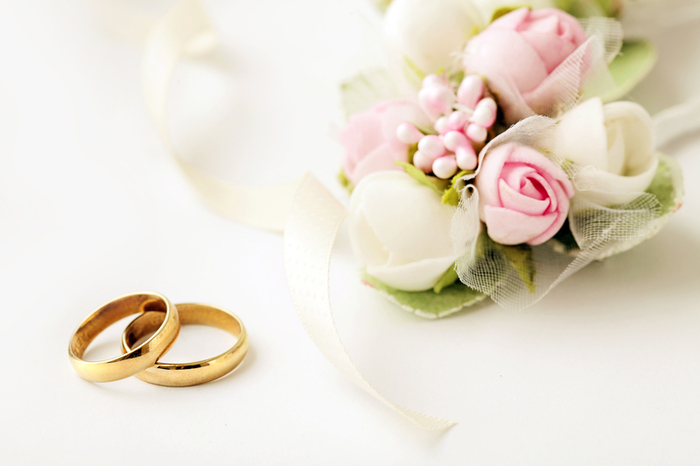- Calls to this hotline are currently being directed to Within Health or Eating Disorder Solutions
- Representatives are standing by 24/7 to help answer your questions
- All calls are confidential and HIPAA compliant
- There is no obligation or cost to call
- Eating Disorder Hope does not receive any commissions or fees dependent upon which provider you select
- Additional treatment providers are located on our directory or samhsa.gov
Don’t Let the Planning Stress of “To-Do” Get in the Way of Your “I Do”

Contributor: Staff at Montecatini Eating Disorder Treatment Center
The question has been popped, you (or your significant other) said yes, and planning the big day itself is all that’s on your mind.
No pressure, right? We’re just talking about a celebration everyone says will be the most memorable day of your life.
From finding your venue to buying a dress, from choosing the music to booking a honeymoon, and from determining whom you’ll invite to writing your vows, planning a wedding can be an experience so stressful that you’ll lose sight of the reason why you’re doing it in the first place: to celebrate your lifelong commitment to the person you love in front of those who mean the most to you.
Any additional factors that can get in the way (for instance, a pandemic) will only serve to add to the tension that comes with having a specific timeline to complete a laundry list of important tasks — many of which must be done before you can move on to the others.
You want to make sure that your guests have as much fun as you do, and that often means tasting food and testing cake ideas. And as soon as you get going on the planning, there will be a big focus on the garment you’ll walk down the aisle in — along with the pictures that will capture how amazing you look during that magical moment in time forever.
For someone who is living with an eating disorder, that can make an already emotionally taxing experience too much to handle.
The focus on the dress — and the body of the bride
Going dress shopping is among the most sacred of pre-wedding traditions, as the bride-to-be gets to pick out the picture-perfect look for saying her I do’s with encouragement from family or members of her bridal party.
But even though almost every dress requires alterations, and tailors can make sure that any bride’s prized dress fits her perfectly, there’s often a lot of pressure to lose weight and look as skinny as possible on the dream day itself.
“Weddings are triggers for people with food and body image issues, because the wedding industrial complex puts so much emphasis on looks and perfection, including pressure to have what society deems the perfect body,” Christy Harrison, a registered dietitian and certified intuitive eating counselor, told SELF in a 2017 interview [1].
Suddenly, a simple quest to look your best and possibly shed a few pounds prior to wedding day can turn into relapse for someone who is recovering from an eating disorder.
There’s even a term that has been coined to describe women who lose weight at a dangerous rate or in unhealthy ways in advance of their weddings: brideorexia.
Call Montecatini for Help at 855-413-1587
When Pre Wedding Weight Loss Goes Too Far
The term brideorexia gained some steam in the mid-2000s after a Cornell study of 272 women who were getting married within a year attempted to gauge their weight loss habits in advance of walking down the aisle.
The averaged idealized weight for all the engaged women was 16 pounds less than their then-current weight. Of the 70% of respondents who said that they wanted to lose weight, 40% used at least one extreme weight control behavior — such as diet pills, fasting, skipping meals, bingeing, or purging — while 25% used two or more [2].
The study found that brides-to-be were 17% more concerned with weight loss than average American women, 53% of whom wanted to lose weight.
Jeffery Sobal, a co-author of that study and a professor of nutritional sociology at Cornell’s College of Human Ecology, spent time researching bridal magazines from the pre-2000s in coordination with the study.
“In the 1990s, there were relatively few entrepreneurial pushes to get women to lose weight. Of all the wedding magazines we could get our hands on, we only found one weight-loss ad,” Sobal told Time magazine in 2011 [3]. “That’s changed since 2000. Now there’s bridal boot camp, extreme makeovers, and they encourage bridal weight loss. There’s a little more pressure by profitmaking groups and competition emphasis on thinness in the bridal community.”
How to Avoid an Eating Disorder Relapse
We’ve covered the many seemingly innocent pre wedding activities that could lead a woman to relapse from an eating disorder. So how can someone ensure that what should be an incredibly happy time and a memorable experience stays that way throughout the planning process?
Here are a few tips:
- Don’t worry about tradition. Rules are meant to be broken. If there’s a traditional look many brides go for that doesn’t make you feel good about your own body, don’t force it. Whether it’s what you’re wearing, what you’re serving, or what you’re doing during the ceremony itself, don’t feel like you have to bend toward what everyone else wants.
- Be careful what you’re reading. It’s only natural to want to check out bridal magazines and social media to get ideas for your own nuptials. But like with anything online or in print, you’re seeing idealized (and often airbrushed) versions of everyone. Don’t be afraid to unfollow, block, or avoid these things altogether if they’re too toxic. Instead of pushing through, give friends you trust — and who know about your struggles with an eating disorder — an idea of what you’re looking for, and ask them to vet the sources you’re hoping to use for inspiration.
- Lean on your support system. One of the best parts of the wedding planning process is the chance to spend extra time with those who matter most. There are a lot of logistics to cover heading toward the big day, but hopefully you get to work through them with your fiancé, your friends, and your family. If there’s something that’s bothering you or presenting as a potential trigger, let them know so that they can help steer around it.
A wedding should be an exciting time, but it can’t be if you’re not able to be your best self. By learning to identify your triggers, you can come up with a plan to get through the to-do’s of the planning process without risking relapse.
If you need additional guidance, don’t be afraid to reach out for professional help. You’re worth it, and you deserve to walk down the aisle happy, healthy, and on your terms.
References:
[1] Howard, H. (2017, Dec. 13). Wedding planning has tested my eating disorder recovery, but I won’t let it sabotage my progress. SELF. Retrieved from: https://www.self.com/story/wedding-planning-eating-disorder-recovery. [2] Lang, S. (2008, Jan. 23). The bride wore white and, maybe, less weight — but study shows she may have gone to extremes for that svelte look. Cornell Chronicle. Retrieved from: https://news.cornell.edu/stories/2008/01/wedding-day-weight-wishes-lose-more-20-pounds. [3] Melnick, M. (2011, April 18). Royal wedding weight watch: Wispy Kate Middleton spotlights ‘brideorexia.’ Time magazine. Retrieved from: https://healthland.time.com/2011/04/18/royal-wedding-weight-watch-wispy-kate-middleton-spotlights-brideorexia/.About Montecatini
 Montecatini provides comprehensive treatment for women who are struggling with eating disorders and co-occurring mental health concerns. We provide a full continuum of life-changing care, including residential treatment, a partial hospitalization program (PHP), and an intensive outpatient program (IOP). We also offer a wellness center where clients can build healthier relationships with their bodies through joyful movement.
Montecatini provides comprehensive treatment for women who are struggling with eating disorders and co-occurring mental health concerns. We provide a full continuum of life-changing care, including residential treatment, a partial hospitalization program (PHP), and an intensive outpatient program (IOP). We also offer a wellness center where clients can build healthier relationships with their bodies through joyful movement.
The opinions and views of our guest contributors are shared to provide a broad perspective on eating disorders. These are not necessarily the views of Eating Disorder Hope, but an effort to offer a discussion of various issues by different concerned individuals.
We at Eating Disorder Hope understand that eating disorders result from a combination of environmental and genetic factors. If you or a loved one are suffering from an eating disorder, please know that there is hope for you, and seek immediate professional help.
Published October 25, 2021, on EatingDisorderHope.com
Reviewed & Approved on August 10, by Jacquelyn Ekern MS, LPC

